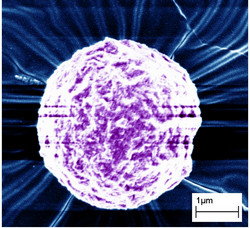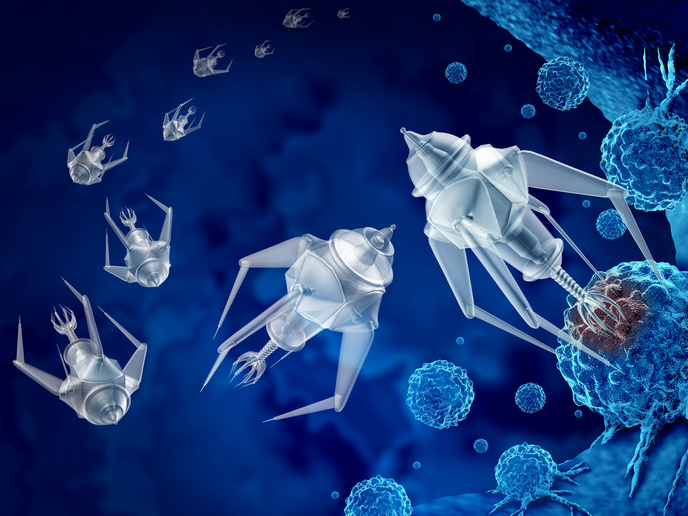Nanotechnology aids cancer immunotherapy
Adoptive T cell therapy is a therapeutic intervention that entails the isolation and ex vivo expansion of patient autologous cancer-specific T cells. The approach has the potential to induce complete and durable regression of certain human malignancies, provided sufficient numbers of T cells can be obtained. To extend cancer immunotherapies to the clinic, the current T cell expansion technologies need to be improved to efficiently produce the large amounts of T cells that are required. To address this issue, the EU-funded OFB-SCI (Orthogonally functionalized binary nanopatterned polymeric substrates for T cell activation and proliferation in cancer immunotherapy) project proposed to develop an artificial T cell proliferation system. This relied on nano-patterned polymeric substrates consisting of gold and oxide nanoparticles functionalised with different biomolecules that trigger T cells and activate their expansion. In the first part of the project, researchers generated hexagonal arrays of gold and titanium dioxide nanoparticles, which were eventually transferred to the surface of polyethylene glycol hydrogels. Functionalisation of nanostructured patterns with anti-CD3 and soluble anti-CD28 were used to achieve T cell activation. Additionally, scientists observed that for the process to be efficient, they had to use hydrogel-binding peptides, underscoring the importance of adhesion in addition to the essential chemical signals. Taken together, the activities of the OFB-SCI project elucidated key factors necessary for ex vivo T cell proliferation and provided important insight into the immunological synapse in artificial substrates. The generated system achieved sufficient T cell proliferation and could be exploited as an alternative to current T cell expansion and activation technologies.







